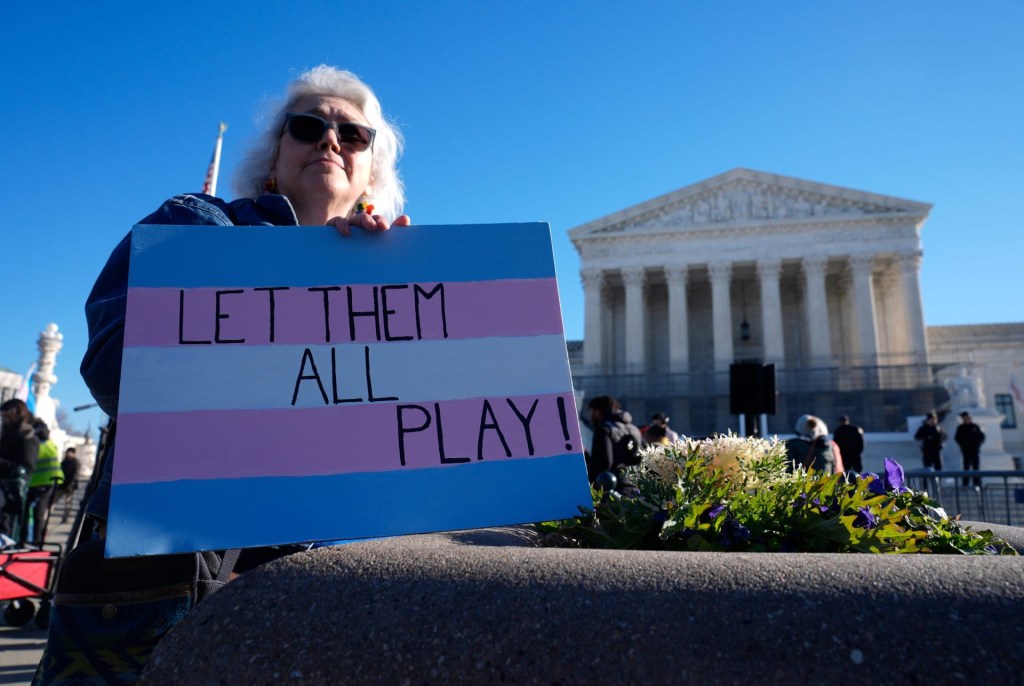For more than a decade, the NCAA has faced a mountain of legal challenges to its restrictions on NIL (name, image, and likeness) deals and transfers. The governing body has mostly lost the ability to enforce these rules as a result.
Now, a new lawsuit is taking aim at those same restrictions in high school.
On Monday, a former California high school football and track athlete, Dominik Calhoun, filed a class-action lawsuit against the California Interscholastic Federation (CIF) and others saying restrictions on NIL earnings and transfers violated antitrust law. The complaint, filed in the Northern District of California federal court—the same jurisdiction that has heard several major NIL cases against the NCAA—asks for the CIF to change its rules, and for the massive “treble damages” requested in antitrust cases.
“These policies harm the high school student-athletes who create the economic value exploited by the CIF, its Sections, its member schools, and their commercial partners, and constitute unreasonable restraints of trade in violation of Section 1 of the Sherman Act,” the complaint read.
If successful, the lawsuit could set a national precedent similar to that in college sports: That restrictions on athlete compensation and player movement are largely indefensible in court.
“This case challenges rules that unfairly prevent high school athletes in California from being compensated for their hard work and the use of their name, image, and likeness—even as others profit from them,” Yaman Salahi, co-lead attorney representing Calhoun, told FOS in a statement. “It’s the logical next step after the reforms inaugurated by successful antitrust litigation on the collegiate level. Corporations see a lot of untapped economic value in high school athletics, and we want to ensure that value is shared equitably with the athletes that create it.”
Since the NCAA changed its rules to allow college athletes to profit off NIL deals in 2021, a fledgling market for high school NIL deals has materialized across the country. However, high school NIL rules are more piecemeal—with each state federation making its own decisions over whether players could participate. California was the first state to signal it would allow NIL deals—and, as a result, players have cashed in across the state. Nike, for example, inked deals with multiple high-profile high school athletes in 2022, including basketball players Bronny James and JuJu Watkins.
But the lawsuit argues that, while the CIF allows for some types of NIL earnings, it restricts others. For example, players can’t receive deals from the schools themselves (something that college athletes are fighting for in the House v. NCAA lawsuit), or affiliated parties like boosters. There are also restrictions on whether their NIL earnings can be directly related to their participation on high school teams.
The lawsuit argues that it severely restricts the ability for athletes like Calhoun to cash in, given that booster-led NIL deals were a major component of the college market. As evidence, the lawsuit notes Calhoun will play football at Boise State in the fall, and has already signed NIL contracts related to the school and its NIL collective. (The lawsuit also challenges strict rules for how and when players can transfer, and penalties imposed upon them if they do.)
“Collectively, these rules and regulations forbid CIF member schools or CIF Sections from sharing the revenue they receive by licensing their student-athletes’ NIL with those very student-athletes, artificially fixing the price student-athletes are compensated for their NIL at zero,” the complaint read.
A representative for the CIF did not immediately respond to a request for comment.





![[Subscription Customers Only] Jul 13, 2025; East Rutherford, New Jersey, USA; Chelsea FC midfielder Cole Palmer (10) celebrates winning the final of the 2025 FIFA Club World Cup at MetLife Stadium](https://frontofficesports.com/wp-content/uploads/2026/02/USATSI_26636703-scaled-e1770932227605.jpg?quality=100&w=1024)











